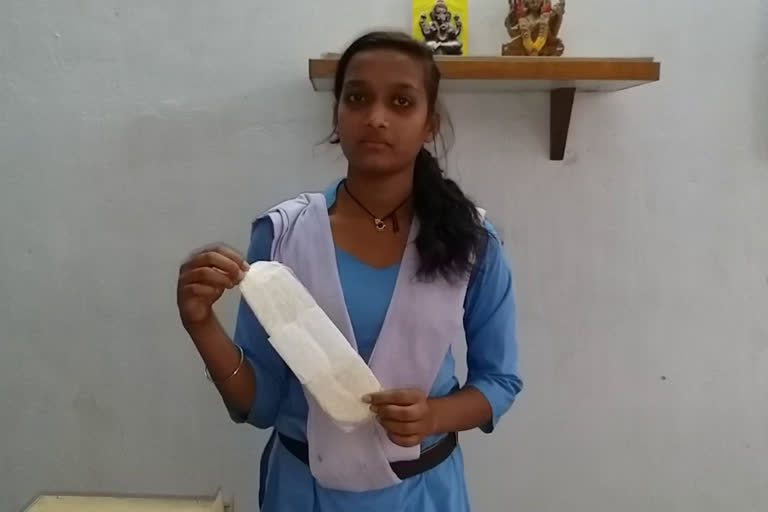Korba: Lack of access to clean hygienic facilities complicates matters for women. In India, hygiene products are not affordable for every woman. Around 88 per cent of menstruating women do not have access to sanitary products and about 90 per cent of the sanitary pads used are made of non-bio degradable plastic.
Reena Rajput, a student of a government school in Korba, Chhattisgarh, is making eco-friendly sanitary pads from banana fibre and has been selected for the Sakura Exchange Program to showcase her innovation in Japan. She will be staying with a Japanese family and learn about the research and education system there.
Under the Inspire Award MANAK Programme, the class 11 student joined the 7th National Science Exhibition held in IIT Delhi on 14-15 February 2019. The objective of this scheme is to encourage students to create innovative projects that solve problems in the field of social development using science and technology.
Reena made her project under the guidance of her school principal, Farhana Ali.
Reena said, "The common branded sanitary pads are made of synthetic layering that can cause skin irritation and rashes. The pads are also one of the leading causes of pollution as they do not decompose."
WHY BANANA FIBRE?
The unique feature of a banana plant is that once it bears fruits, it has to be cut down. So, we are using the waste material of a banana tree that has borne fruit, that’s technically agricultural waste, for extracting the fibre. Since this is organic, there are no health hazards. Banana fibres are one of the most absorbent fibres; it can absorb up to six times its weight in water. Also, these pads can be reused.
Reusable products not only help consumers save money but also offer a better choice to well-informed women who want to do their bit for the planet.



